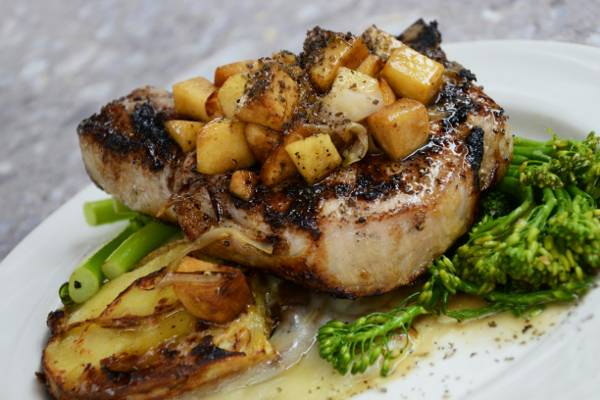Nutrition plays a critical role in achieving your fitness goals. Whether you’re lifting weights, running marathons, or practicing yoga, what you eat before and after your workouts can significantly impact your performance, recovery, and results. In this comprehensive guide, we’ll explore the science behind pre- and post-workout nutrition, provide practical meal ideas, and share tips to optimize your diet for maximum fitness gains.
1. Why Nutrition Matters in Fitness
Nutrition is the fuel that powers your workouts and helps your body recover afterward. Here’s why it’s essential:
- Energy: Food provides the calories and nutrients needed to perform at your best.
- Recovery: Proper nutrition helps repair muscles and replenish energy stores.
- Performance: The right foods can enhance strength, endurance, and focus.
Internal Link: For tips on staying motivated to exercise, check out our article on How to Stay Motivated to Exercise.
2. The Science of Pre-Workout Nutrition
What you eat before a workout can make or break your performance. Here’s what you need to know:
The Importance of Carbohydrates
Carbohydrates are your body’s primary source of energy. They’re stored as glycogen in your muscles and liver, which your body uses during exercise.
Example: A banana or a slice of whole-grain toast with honey can provide quick energy.
The Role of Protein
Protein helps prevent muscle breakdown during exercise and prepares your body for recovery.
Example: Greek yogurt or a small protein shake can be a great pre-workout snack.
Timing Matters
Eat a balanced meal 2-3 hours before your workout or a small snack 30-60 minutes before.
Internal Link: For meal planning tips, check out our guide on Healthy Eating on a Budget.
3. What to Eat Before a Workout
Here are some pre-workout meal and snack ideas based on your fitness goals:
For Strength Training
- Meal: Grilled chicken with quinoa and steamed vegetables
- Snack: A protein bar or a handful of almonds
For Cardio
- Meal: Oatmeal with berries and a drizzle of honey
- Snack: A banana or a small smoothie
For Endurance Activities
- Meal: Whole-grain pasta with marinara sauce and lean ground turkey
- Snack: A rice cake with peanut butter
4. The Science of Post-Workout Nutrition
After a workout, your body needs nutrients to recover and rebuild. Here’s why post-workout nutrition is crucial:
Replenishing Glycogen Stores
Carbohydrates help restore the glycogen used during exercise.
Repairing Muscle Tissue
Protein provides the amino acids needed to repair and build muscle.
Reducing Inflammation
Antioxidants and healthy fats can help reduce muscle soreness and inflammation.
Internal Link: For tips on recovery, read our article on Common Workout Mistakes and How to Avoid Them.
5. What to Eat After a Workout
Here are some post-workout meal and snack ideas to support recovery:
For Strength Training
- Meal: Grilled salmon with sweet potatoes and broccoli
- Snack: A protein shake with a piece of fruit
For Cardio
- Meal: A turkey and avocado wrap with a side of fruit
- Snack: Chocolate milk (a great balance of carbs and protein)
For Endurance Activities
- Meal: Brown rice with grilled chicken and a mixed green salad
- Snack: A smoothie with spinach, banana, and protein powder
6. Hydration: The Forgotten Nutrient
Staying hydrated is just as important as eating the right foods. Here’s why:
- Performance: Dehydration can lead to fatigue and decreased performance.
- Recovery: Water helps transport nutrients to your muscles and remove waste products.
Tip: Drink water before, during, and after your workout. For intense or long workouts, consider a sports drink with electrolytes.
7. Supplements for Fitness Nutrition
While whole foods should be your primary source of nutrients, supplements can help fill gaps. Here are some popular options:
Protein Powder
Convenient for post-workout recovery.
Branched-Chain Amino Acids (BCAAs)
May help reduce muscle soreness and improve recovery.
Creatine
Supports strength and power during high-intensity workouts.
Internal Link: For more on supplements, check out our guide on Top 10 Superfoods for Weight Loss and Energy Boost.
8. Common Nutrition Mistakes to Avoid
Even with the best intentions, it’s easy to make mistakes. Here’s what to watch out for:
Skipping Pre-Workout Meals
Exercising on an empty stomach can lead to low energy and poor performance.
Overeating After a Workout
While refueling is important, overeating can negate the calories you burned.
Ignoring Hydration
Dehydration can impair performance and recovery.
9. Tailoring Nutrition to Your Fitness Goals
Your nutritional needs depend on your specific goals. Here’s how to adjust your diet:
For Weight Loss
Focus on a calorie deficit while maintaining protein intake to preserve muscle mass.
For Muscle Gain
Increase your calorie and protein intake to support muscle growth.
For Endurance
Prioritize carbohydrates to fuel long workouts and races.
10. Meal Planning for Fitness Success
Planning your meals can help you stay on track with your nutrition goals. Here’s how to get started:
Prep in Advance
Cook meals and snacks in bulk to save time during the week.
Use a Food Diary
Track what you eat to ensure you’re meeting your nutritional needs.
Experiment with Recipes
Keep things interesting by trying new healthy recipes.
Internal Link: For meal planning tips, check out our article on Healthy Eating on a Budget.
11. Final Thoughts
Nutrition is a powerful tool for enhancing your fitness journey. By fueling your body with the right foods before and after workouts, you can improve performance, speed up recovery, and achieve your goals faster. Remember, consistency is key, and small changes can lead to big results over time.
